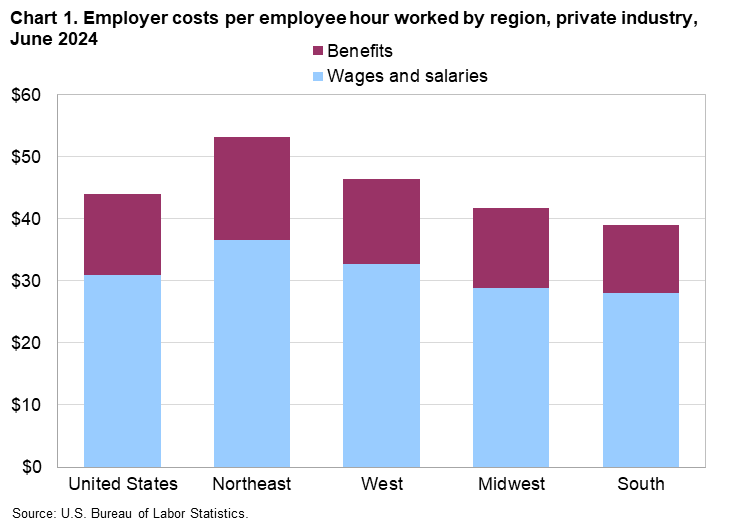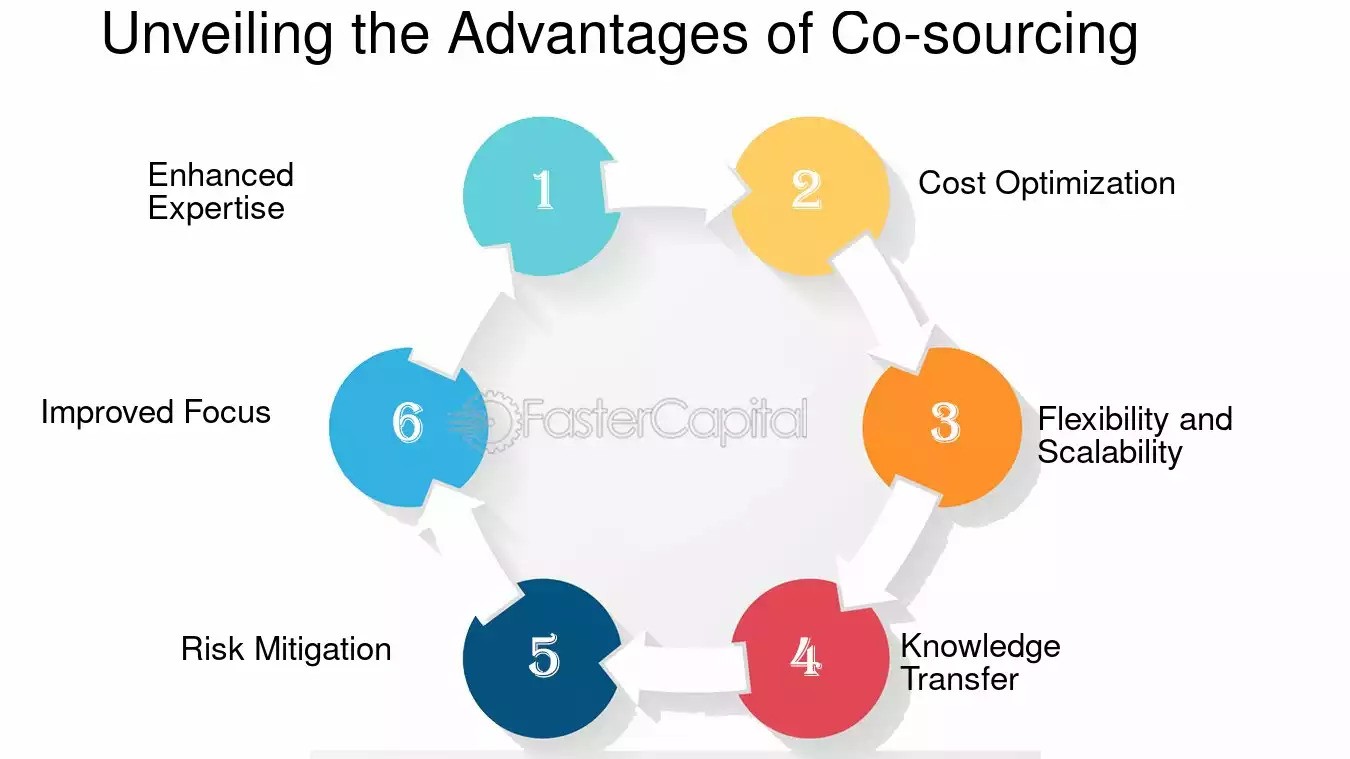Managing your payroll is one of the most essential parts of running your business. But thanks to various legal obligations, it’s also one of the most complex.
It’s also not just about ensuring your employees are paid on time—there are wage calculations, payroll taxes, compliance with labor regulations, and keeping your employees’ sensitive personal information secure.
This is why many companies, particularly small businesses, may want to consider outsourcing their payroll services to a third-party provider.
This guide will explain payroll outsourcing and how it works. I’ll also discuss its pros and cons and how to decide whether it’s the right choice for your business.
What Is Payroll Outsourcing?
Let’s start with the basics: payroll outsourcing means hiring an external payroll service provider to handle some or all of your payroll tasks. These include anything from employee wage calculation and payroll taxes to generating pay stubs and complying with labor laws.
Outsourcing doesn’t just stop at payroll administration, though. Many payroll providers offer an all-inclusive solution for a variety of business needs. Some providers manage benefits administration, including retirement plans, healthcare, and paid leave, while others provide detailed payroll reports to help you monitor cash flow and payroll costs.
If your company operates internationally, some providers will offer global payroll services to ease compliance with foreign regulations.
Another major plus is that payroll outsourcing services usually provide considerable support for payroll software, making payroll processes smooth, error-free, and highly secure for critical payroll data.
Whether a small business is looking to save time or a large company with complex payroll requirements, outsourcing payroll can meet a wide range of business needs.
How Payroll Outsourcing Works
On the surface, outsourcing payroll might sound like a complex process, but in reality, it is quite simple. Here’s a step-by-step breakdown to help you understand how payroll outsourcing works:
Step 1: Data Collection and Transfer
The whole process begins with providing payroll data to the payroll outsourcing company. This would include employee information such as hours worked, salaries, tax deductions, bonuses, and overtime.
Most payroll service providers use secure online portals or automated integrations with HR and accounting systems to ensure the data transfer process is secure and effortless.
Step 2: Payroll Processing
After collecting the data, it is processed into actual wages, deductions, and employee tax withholdings. They use advanced payroll software to guarantee the accuracy and conformance of the calculations to regulations concerning payroll.
Finally, after the processing stage is complete, pay stubs are created and made accessible to your employees via secure online platforms.
Step 3: Tax Filing and Compliance
Tax compliance is a key challenge for businesses due to the many complex regulations and the frequent changes aggravating this complexity. Your payroll provider does payroll tax filings, ensures deadlines are met, and maintains updates on changes in tax laws.
This minimizes the possibility of penalties and keeps your company in full compliance with local and international payroll laws.
Step 4: Payment Distribution
The final step in payroll is payment distribution, which means actually paying all your employees. This most often involves a direct deposit into their bank accounts, but it can also involve other methods such as digital payments via PayPal, cash payments, and so on.
Then, they’ll produce any required reports. This way, you will know your payroll costs, be able to keep an eye on cash flow, and, most importantly, be able to conduct payroll trend analyses to help with your decision-making in the future.
By outsourcing these 4 core payroll functions, your business can focus on its core activities while leaving the burden of tedious, though complicated, administrative tasks to experienced payroll providers.
Pros of Outsourcing Payroll
Outsourcing payroll has many advantages, which businesses of all sizes can capitalize on. A look in detail at some crucial pros:
Time Savings
Processing payroll requires a great deal of time, especially for a small company with minimal resources. Outsourcing your payroll responsibilities saves crucial time that you would have wasted on repetitive administrative chores. This means you can now use that precious time to focus on expanding your business.
Improved Accuracy
Payroll mistakes can result in costly repercussions, such as fines, legal penalties, and dissatisfied employees. Payroll service providers use specialized payroll software and their years of expertise to ensure that all payroll calculations are accurate and fully compliant with relevant tax laws.
Compliance with Payroll Regulations
Keeping up to date with payroll regulations and requirements for tax compliance can be overwhelming. However, managing wages and salaries is what external payroll providers do, and part of that is taking on this responsibility. This means your risk of being penalized due to non-compliance is reduced, and your business stays in good standing with the authorities.
Data Security
Payroll management involves sensitive personal and business information, such as employee bank details and Social Security numbers. Most payroll outsourcing companies use multi-factor authentication, encryption, and various other security measures to prevent malicious access to payroll data.
Scalability
From onboarding new employees to expanding into international markets, scalability is an inherent feature of outsourced payroll services. This is because they dedicate all their available resources to ensuring they have all the software tools and experience you need to manage your payroll — whether you’re a tiny startup or a massive multinational corporation.
Cons of Outsourcing Payroll
Outsourcing payroll can present some disadvantages, too. Before you decide, consider these challenges:
Loss of Control
By outsourcing payroll, you are assigning a third-party responsibility for a critical element of your business. This will alleviate part of your workload, but it also means losing any direct control of the payroll process.
Cost
While payroll outsourcing saves time, it comes at a cost. For small businesses with strained budgets, these may be more than the benefits it offers if their payroll processes are relatively uncomplicated.

Data Security Risks
The process of sharing sensitive payroll data with a third party will always carry some level of risk. If malicious actors are able to compromise your chosen provider’s security measures, then all your sensitive payroll data may be exposed.
Limited Customization
Some payroll providers may not be flexible enough to adapt their services to fit your specific needs, which is a disadvantage for businesses that have unique or very complex payroll needs.
Dependence on Provider
Relying on an external provider means that any disruptions in their services, such as technical issues or miscommunications with your team, could impact your payroll process. And that would impact both your employee’s satisfaction and your finances.
Should You Outsource Payroll? Key Considerations
Here are a few variables to consider regarding payroll outsourcing decisions for your business.
Size of Your Business
If your company is small and performs minimal payroll-related tasks, then it may be perfectly fine to handle those payroll operations in-house. For larger businesses with more involved payroll functions — like employee benefits or tax compliance in multiple jurisdictions — outsourcing often yields more favorable benefits.
Complexity of Payroll Needs
Business entities with complex payroll needs, such as paying overseas personnel or hundreds of employees in general, generally find that outsourcing is far more efficient and actually saves them money.
Budget and Cost Analysis
Compare payroll outsourcing costs with the costs of keeping an in-house payroll team. Consider the direct cost, time savings, and reduced errors in analysis.
In-House Expertise
If your team is not familiar with efficiently handling payroll, outsourcing ensures that the work is done by professionals, minimizing errors and risks related to non-compliance.
Focus on Core Activities
Outsourcing payroll frees your resources for more strategic business functions, such as enhancing customer service or increasing your market share.
Co-sourcing Payroll: A Hybrid Approach
If fully outsourcing payroll feels too hands-off, co-sourcing offers a middle ground that mixes external expertise with in-house control. This hybrid approach to payroll is ideal for those businesses that want the best of both worlds.
What Is Payroll Co-sourcing?
Co-sourcing is a payroll model in which certain payroll functions are outsourced while others remain with the company. For instance, your team collects and reports data, and a payroll provider takes responsibility for tax filings and disbursements.
The result is a collaborative solution whereby organizations can tap into the expertise of payroll outsourcing providers without fully releasing control of sensitive payroll functions.
Advantages of Co-sourcing
There are several benefits of co-sourcing payroll, including the following:

- Flexibility: You can select the functions to outsource based on your internal capabilities and budget.
- Cost-effectiveness: Since you’re only outsourcing selected functions, co-sourcing can be more affordable than full outsourcing.
- Greater Control: By retaining partial payroll in-house, you retain greater oversight and flexibility while benefiting from professional assistance.
- Access to Expertise: Even with partial outsourcing, you gain access to payroll experts who help ensure compliance, accuracy, and security in the tasks they manage.
- Scalability: Co-sourcing is very good for growing businesses. You can increase the level of outsourcing bit by bit as your needs develop.
When to Consider Co-sourcing?
There are several occasions when co-sourcing would work perfectly:
- Complex but Manageable Payroll Needs: If payroll tasks are too complex for a small in-house team yet big enough not to justify full outsourcing, co-sourcing balances workload and efficiency.
- Budget Constraints: For those businesses looking to save money, co-sourcing allows you to pay for just the expertise and services you need.
- Desire for Hands-on Control: If you want to be hands-on with certain aspects of the payroll process, co-sourcing provides the control you want but offloads more technical or compliance-driven tasks to the pros.
- Internal Resources: Companies with well-staffed HR or accounting departments might want to outsource less-complex tasks, such as data gathering or employee onboarding, while continuing to handle more complex functions, such as tax compliance or payroll software integration, in-house.
Co-sourcing payroll combines maximum autonomy with specialist backup support. Outsourcing payroll for companies looking to retain budget thrift without compromising on the level of precision, compliance, or the safety of data will always prove alluring. It is scalable with the growth in business because you will be billed based on exactly what is utilized.
Explore more on Payroll
-
 EditorRashmi Sharma is an editor at Geekflare. She is passionate about researching business resources and has an interest in data analysis.
EditorRashmi Sharma is an editor at Geekflare. She is passionate about researching business resources and has an interest in data analysis.


